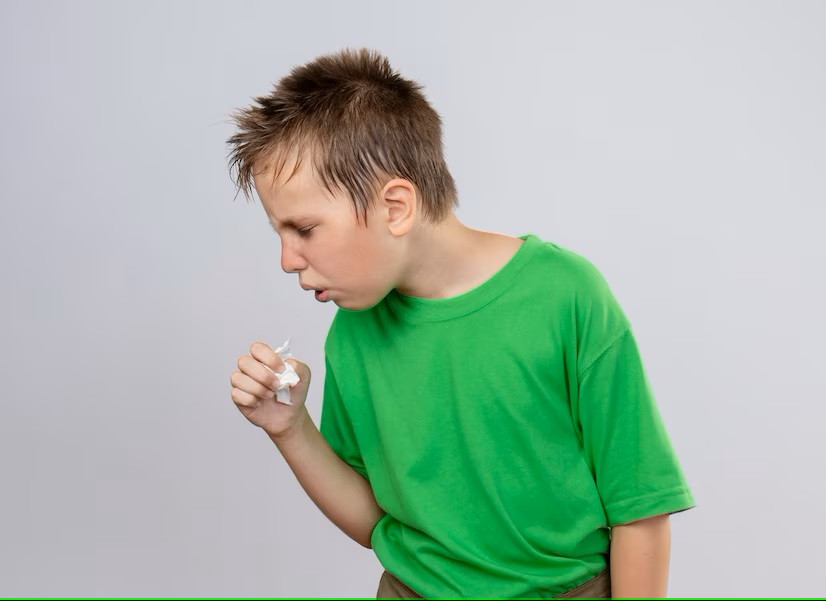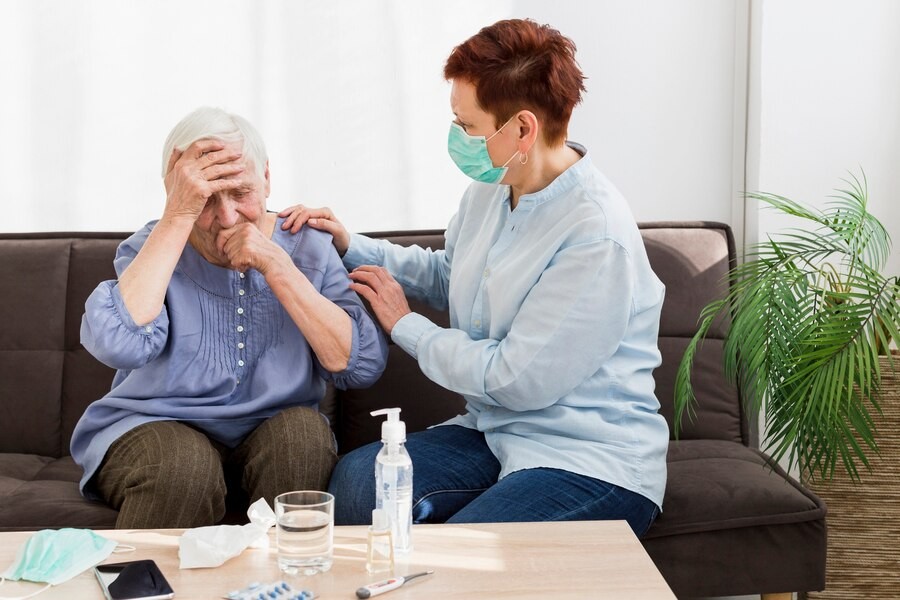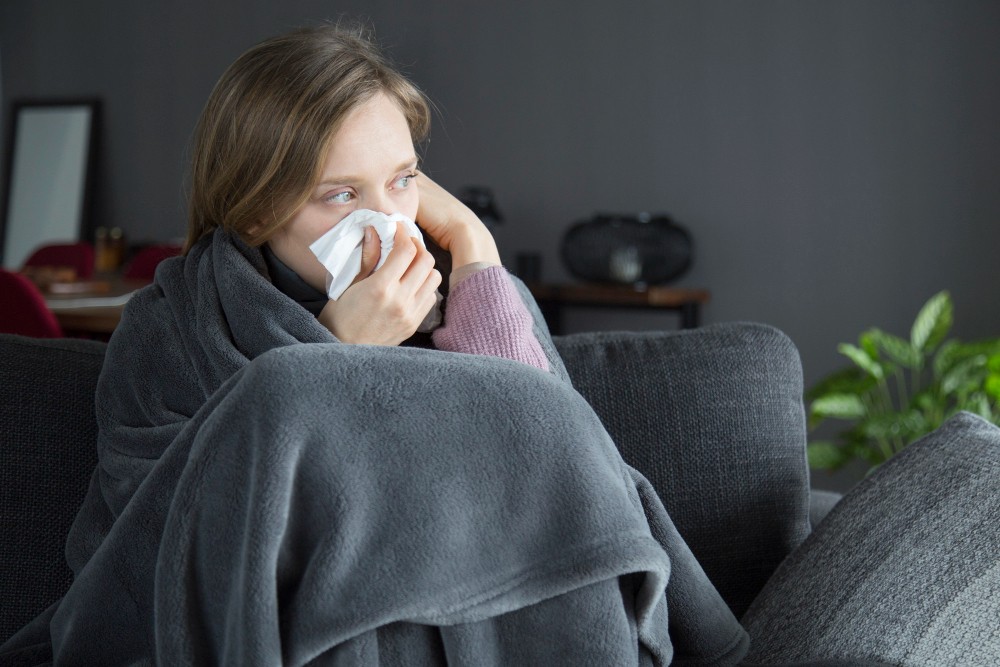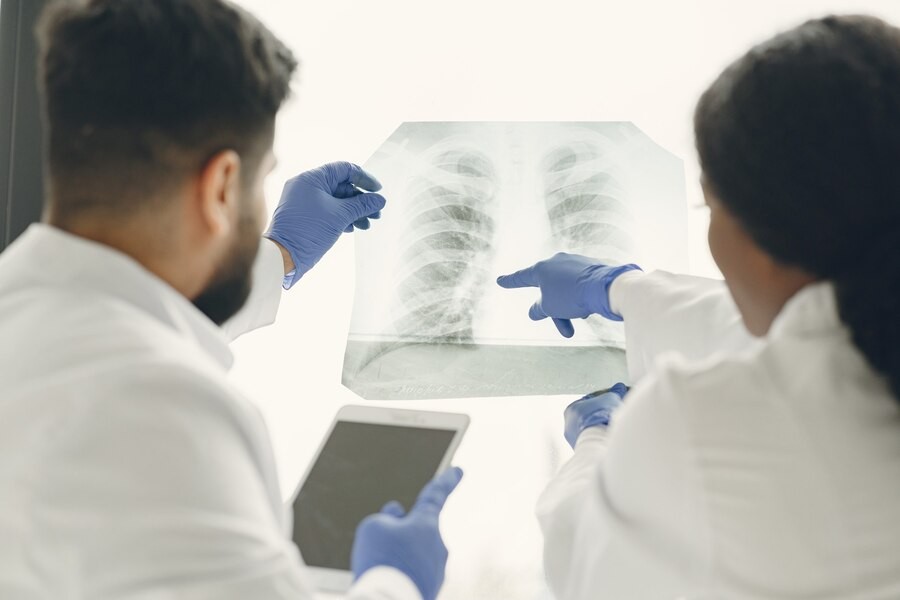Pneumonia, whether caused by bacteria or viruses, is an infection affecting one or both lungs, leading to inflammation of the air sacs within. This inflammation often results in the accumulation of fluid or pus, manifesting in symptoms such as coughing with phlegm, fever, chills, and breathing difficulties.
Infants and children are particularly vulnerable to pneumonia due to their ongoing immune system development. This susceptibility poses risks of lung damage, potential complications, and an increased likelihood of respiratory failure in affected children.
Signs and symptoms of pneumonia in children
The signs and symptoms of pneumonia in children can vary depending on the cause. But it is frequently difficult to tell whether pneumonia is caused by bacteria or viruses. Common signs and symptoms of a pneumonia infection include:
- Cough with phlegm
- Pain in the chest, especially when coughing
- Rapid breathing and shortness of breath
- Nausea and vomiting
- Loss of appetite
- Fatigue
- Fever
- Bluish lips or nails due to lack of oxygen in the blood
A doctor's examination is necessary to obtain an accurate diagnosis, as the symptoms can mimic those of other health conditions.
How to diagnose pneumonia in children
Coughing up phlegm is a common occurrence in children. However, it's important to seek medical attention if your child experiences difficulty breathing, a persistent fever of 39 degrees Celsius or higher, pus in the sputum, or chest pain.
To determine whether your child's cough is due to pneumonia, your doctor may recommend a range of diagnostic tests, including:
- X-rays to assess organ conditions
- Blood tests to detect signs of infection
- Sputum culture to identify the infecting agent
- Pulse oximeter to measure blood oxygen levels
- Chest CT scan for detailed chest images
- Bronchoscopy to examine the lung airways
- Pleural fluid culture to analyze fluid from the space between the lungs and chest wall
Treatment of pneumonia in children
After a thorough examination, the doctor will devise an appropriate treatment plan for your child's pneumonia based on its underlying cause. If the pneumonia stems from a bacterial infection, antibiotics will be prescribed. Conversely, viral-related pneumonia typically does not require specific treatment as it tends to resolve spontaneously, although pneumonia linked to the flu virus may benefit from antiviral medications.
Alongside medication, the following treatments are recommended to alleviate pneumonia symptoms and expedite recovery in children:
- Adequate rest to bolster the immune system's natural defenses against the infection
- Encouraging sufficient fluid intake to maintain hydration levels
- Humidifying the air around the child to facilitate easier breathing
- Administering fever-reducing medication like paracetamol to alleviate fever and discomfort
- Providing cough medicine to help ease the accompanying cough of pneumonia
In more severe cases, such as when the child has severe breathing problems, children need to be hospitalized. When it comes to medication and treatment needs, discuss with your doctor what is needed and appropriate for your child's condition.
If you need medical advice or consultation, you can either visit a doctor or make use of the consultation features that are available in the Ai Care application by downloading the Ai Care application from the App Store or Play Store.
Looking for more information about pregnancy, breastfeeding, and the health of women and children? Click here!
- dr. Monica Salim
Cedars Sinai. Pneumonia in Children. Available from: https://www.cedars-sinai.org/health-library/diseases-and-conditions---pediatrics/p/pneumonia-in-children.html
Kids Health (2023). Pneumonia. Available from: https://kidshealth.org/en/parents/pneumonia.html
Healthy Children (2020). Pneumonia in Children. Available from: https://www.healthychildren.org/English/health-issues/conditions/chest-lungs/Pages/Pneumonia.aspx
Mayo Clinic (2020). Pneumonia. Available from: https://www.mayoclinic.org/diseases-conditions/pneumonia/symptoms-causes/syc-20354204
WebMD (2022). What Is Bacterial Pneumonia?. Available from: https://www.webmd.com/lung/bacterial-pneumonia











